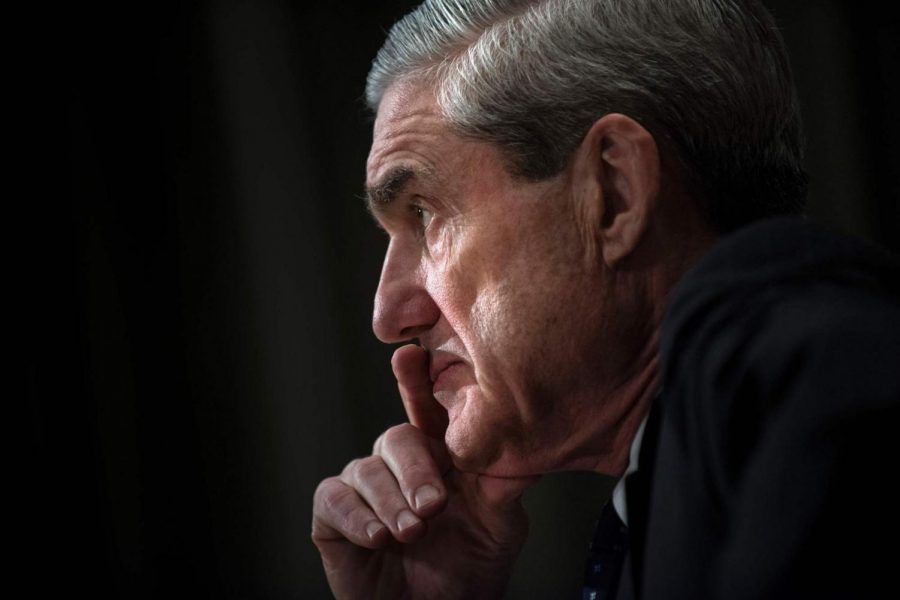Mulling Over Mueller
What you need to know about the investigation into Trump-Russia collusion
I’m a betting man at heart.
So when it comes to the most far-reaching and consequential political investigation in our country’s illustrious history, you can be certain that I’m going to place some of my chips on predicting the outcome.
Robert S. Mueller III, a longtime figure in Washington who has served in the Department of Justice under multiple administrations, is tasked with leading the special counsel investigation into Russian interference in the 2016 presidential election, and whether people within the Donald Trump campaign colluded with foreign governments – namely Russia – to tip the scales in their favor.
Robert Mueller and his all-star team of career lawyers have been granted the authority to not just investigate links between the Trump campaign and the Russian government, but “any matters that arose or may arise directly from the investigation,” according to Deputy Attorney General Rod Rosenstein, who is overseeing the probe.
Which means that crimes such as, say, money laundering and accepting illegal foreign contributions are fair game for prosecution.
The combined résumé of Mueller’s lineup offers some hints on what kinds of crimes they may expect, or know that they need expertise in.
They have been involved in hundreds of cases involving organized crime, financial fraud, money laundering, cybersecurity issues, counterterrorism, appellate law, and more.
Prediction: By 2020, Donald Trump will be out of office via impeachment, and he and others in his campaign will be facing a litany of charges that will be brought about by the special counsel’s investigation.
Global Intelligence Apparatus
The investigation already has what it needs to lock up dozens of individuals within the Trump campaign, but the wheels of justice, by design, turn slowly.
The FBI counterintelligence investigation into the Trump campaign and their suspicious connections with Kremlin-linked individuals began in late July 2016.
According to the Guardian, multiple foreign intelligence agencies, including that of Britain, Germany, Australia, the Netherlands, and France, picked up suspicious communications between Trump officials and Russian-backed individuals as early as 2015.
The information, intercepted during routine intelligence gathering and then given to U.S. officials, was deemed so sensitive that it was handled at “director level.”
This is what ultimately kicked off the multiple inter-agency, counter-espionage effort by American bureaus.
“They now have specific concrete and corroborative evidence of collusion,” a confidential source told the Guardian. “This is between people in the Trump campaign and agents of [Russian] influence relating to the use of hacked material.”
The “hacked material” is referring to the emails stolen from the Democratic National Committee by Russian agents, which were then disseminated through Wikileaks.
According to many legal experts, collusion is tough to prove. It comes down to who was involved, when it occurred, what type of information was exchanged, and, perhaps most importantly, the intent of the parties involved.
So, collusion may not end up being the main avenue for prosecution. But the key phrase in the appointment of the special counsel was “any matters that arose or may arise from the investigation.”
And when it comes to legal matters, Trump faces many, including on the civil litigation front from adult film actress Stormy Daniels and her heavy-hitting lawyer Michael Avenatti.
Special Counsel’s Investigation
It’s hard to say where exactly the special counsel is currently at with their investigatory timeline. Mueller, a Vietnam veteran, former FBI director, and well-known by-the-books official, runs a leak-free ship.
The team chases leads in the shadows and any new information that comes out usually comes byway of requests for interviews or indictments of targets in the investigation.
Regarding indictments, there are many. As of now, Mueller has indicted 19 individuals and three separate entities. Of those 19, 13 are Russian nationals who have been charged with conspiracy to defraud the United States, as well as wire fraud and bank fraud.
This is in connection with their roles with the Internet Research Agency, a St. Petersburg-based “troll farm” that attempted – and succeeded – in interfering in the United States presidential election.
“Of course the Russian effort affected the outcome. Surprising even themselves, they swung the election to a Trump win,” said James Clapper, former United States Director of National Intelligence from 2010 to 2017, in his new book. “Less than 80,000 votes in three key states swung the election. I have no doubt that more votes than that were influenced by this massive effort by the Russians.”
The indictment of over a dozen Russian nationals resoundingly shut the door on the idea that the investigation was nothing more than a partisan “witch hunt.”
It was also the first public piece of information confirming Russian interference in the 2016 election, affirming the conclusion that the intelligence agencies came to months prior.
The Mueller inquiry hasn’t just skirted around the periphery of Trump’s campaign, either. The biggest developments in the investigation have reached directly into Donald Trump’s inner circle.
Flipping Conspirators
Former National Security Adviser Michael Flynn pleaded guilty to making false statements in December 2017, and George Papadopoulos pleaded guilty to similar charges in October. Papadopoulos served as a foreign policy adviser for Trump.
Both men lied about their contacts – or attempts to set up contacts – with members of the Russian government or people with high-level connections to the Russian government.
Flynn and Papadopoulos have agreed to cooperate with Mueller’s probe, offering information on further Trump campaign misdeeds in exchange for lighter sentences.
Former Trump campaign manager Paul Manafort, and Deputy Campaign Chairman Rick Gates, have also been charged.
Manafort, who had previously worked extensively as a foreign agent on behalf of Kremlin-friendly Ukrainian politicians, has been indicted on over 18 crimes, including being an unregistered foreign agent and conspiracy against the United States.
Rick Gates has pleaded guilty and agreed to offer information regarding “any and all matters” related to Special Counsel Mueller’s investigation.
The significance of these indictments cannot be understated. Federal investigators only offer plea deals if they know that they can receive noteworthy insider information that can further the investigation, and lead to more indictments of guilty individuals.
The tactic is called “flipping” witnesses. A member of Mueller’s team, Andrew Weissman, the man who headed the Justice Department’s fraud investigation into Enron, is an expert in aggressively securing witness testimony, according to people familiar with him.
Perhaps the most explosive incident regarding the Trump-Russia timeline was the FBI raid on Trump’s longtime personal lawyer and good friend, Michael Cohen. The raid was executed by the U.S. Attorney for the Southern District of New York on referral from the special counsel.
Business records, emails, and other documents spanning years were all seized during the surprise raid after being under secret criminal investigation for months.
Getting Cohen to flip would be the nail in the coffin for Donald Trump. Cohen likely knows more than anyone on Trump’s dealings, especially in relation to the case on collusion. He was named as a significant figure in the Trump campaign’s attempts to set up a secret relationship with Russia, according to the infamous “Steele Dossier.”
The Case for Impeachment
Conventional legal wisdom states that a sitting president cannot be indicted. The Justice Department holds this to be true, as well.
The Constitution bars the president from facing criminal prosecution, according to the Department of Justice, and Mueller has said that he would follow department guidelines.
This means that for Trump to be indicted, he would have to go the “Nixon route,” i.e., articles of impeachment through Congress.
With the current Congressional layout being tilted in Republican favor with unabashed support of Trump, impeachment proceedings would hinge on a strong Democratic showing in the November midterm elections.
All indicators are pointing to a “Blue Wave” come election season, as a record number of incumbent Republican legislators have opted to retire while dozens of upstart Democrats have secured victories in districts that leaned heavily towards Trump in 2016.
If the midterm results follow the current projections and Democrats can find a super-majority in the Senate to agree with their conclusions, expect Trump to be out of office sometime in 2019 via impeachment.
The charges? Obstruction of justice relating to the firing of then-FBI Director James Comey; conspiracy to defraud the United States in regards to his actions in aiding and abetting Russian help to influence the 2016 election; and other crimes, such as those involving federal election law and receiving illegal contributions.
Ken Allard can be reached at [email protected]

Ken Allard is a Los Angeles native and is in his fourth year at Glendale Community College. He enjoys covering hard news, politics, feature stories, sports,...

